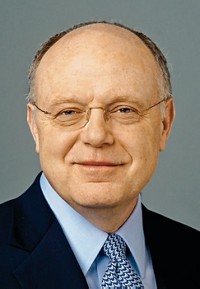Advertisement
Grab your lab coat. Let's get started
Welcome!
Welcome!
Create an account below to get 6 C&EN articles per month, receive newsletters and more - all free.
It seems this is your first time logging in online. Please enter the following information to continue.
As an ACS member you automatically get access to this site. All we need is few more details to create your reading experience.
Not you? Sign in with a different account.
Not you? Sign in with a different account.
ERROR 1
ERROR 1
ERROR 2
ERROR 2
ERROR 2
ERROR 2
ERROR 2
Password and Confirm password must match.
If you have an ACS member number, please enter it here so we can link this account to your membership. (optional)
ERROR 2
ACS values your privacy. By submitting your information, you are gaining access to C&EN and subscribing to our weekly newsletter. We use the information you provide to make your reading experience better, and we will never sell your data to third party members.
Policy
AstraZeneca Rejects ‘Final’ Pfizer Offer
Acquisitions: Deal not sweet enough to make British firm bend to merger pressure
by Ann M. Thayer
May 19, 2014
AstraZeneca’s management has rejected Pfizer’s fourth and presumably final takeover offer, this one valued at $119 billion.
“We have rejected Pfizer’s final proposal because it is inadequate and would present significant risks for shareholders, while also having serious consequences for the company, our employees, and the life-sciences sector in the U.K., Sweden, and the U.S.,” AstraZeneca Chairman Leif Johansson said. Even if key concerns around a merger had been satisfactorily addressed, he added, AstraZeneca’s board wanted to see an offer of more than $127 billion before it would consider recommending it to shareholders.
The rejection seems to end a takeover saga that has been gripping the drug industry for weeks. In a letter to AstraZeneca, Pfizer indicated that its proposal “is final and cannot be increased.” It also said it will not make a hostile offer directly to AstraZeneca shareholders.
The bid represented a 53% premium to AstraZeneca’s stock price in early January. The British firm’s share price fell about 11% on Monday May 19 on news of the rejection.
Pfizer began pursuing AstraZeneca back in January with a $100 billion bid. Since the end of April, it has ramped up its efforts through higher bids, appearances before British parliamentary committees, and appeals to lawmakers and shareholders. Pfizer CEO Ian C. Read has been on a campaign to provide assurances that the merger would not negatively impact AstraZeneca’s R&D operations.
“We are excited at the opportunity to create a scientific powerhouse, delivering great benefits to patients and science in the U.K. and across the globe,” Read said when making the latest offer. “We stand by our unprecedented commitments to the U.K. government.”
However, AstraZeneca was eager to point out that a main driver of a merger would have been to move Pfizer’s domicile from the U.S. to the U.K. and benefit from reduced tax rates. “Pfizer’s approach throughout its pursuit of AstraZeneca appears to have been fundamentally driven by the corporate financial benefits to its shareholders of cost savings and tax minimization,” Johansson said. “Pfizer has failed to make a compelling strategic, business, or value case.”
As Pfizer pursued AstraZeneca, U.S. lawmakers started to respond to a potential “inversion,” or switching of tax headquarters, by a major U.S. corporation. Earlier this month, Senator Carl Levin (D-Mich.) expressed concern about companies moving offshore, at least on paper, while maintaining operations in the U.S. “I am talking to my colleagues about legislation to close the loophole, which I intend to introduce soon,” he said on May 8.






Join the conversation
Contact the reporter
Submit a Letter to the Editor for publication
Engage with us on Twitter